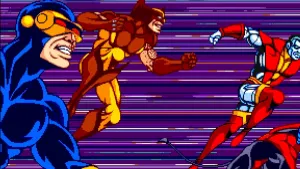Returning NFL Player Planning Video Game Addiction Charity

Meet Quinn Pitcock. This football player was brought on to the Indianapolis Colts back in 2007 but quit suddenly and unexpectedly in 2008 and disappeared. Now he's resurfaced on the Seattle Seahawks, and he says that depression and video game addiction were the reasons behind his previous departure.
In a blog post on the Seattle Seahawks website (via the News Tribune), Pitcock was forthcoming about the truth behind his hiatus from the NFL. "I had just gotten to a point in my life where I was down and just made some rash decisions of quitting," he said.
And what did he do with his free time after leaving the NFL? "I ended up using video games as my out, I got sucked into that. I got lost to the world." Eventually, Pitcock ended up seeking help for his depression and was able to set down the controller and get back to...er, real-life games, I guess.
It's fantastic that Pitcock sought and found help for his depression. That's a very serious issue that many people don't deal with properly. But this seems like a clear-cut case of someone with depression developing an obsession to help relieve the anxiety they feel -- not what I would personally call addiction. In fact, video games are not currently classified as an addiction by the DSM (Diagnostic and Statistic Manual of Mental Disorders), the list of disorders published by the American Psychiatric Association.
Pitcock seemingly disagrees. Later in the blog post:
“I’m actually going to start some kind of charity to help kids who are addicted to video games. I got to a point where I broke and burned many video games trying to quit. But that was my outing, so once I got rid of that and realized I could start eating healthy and exercising and do all that, I got back on track.”
I don't want to pass judgment on a guy who just conquered depression and is getting back to doing something he's passionate about -- I totally support that -- but I think it would be more useful to put that money towards charities supporting kids or athletes suffering from depression. Pitcock says himself elsewhere in the post:
"...a lot of athletes do deal with depression and anxiety and a lot of issues. But it doesn’t really get covered as much because being alpha males and just being the strong type, you try not to show your weaknesses."
That seems like something more worth drawing attention to than the stuff you used as your outlet while suffering from said depression.
[Image via Tirico Suave]









